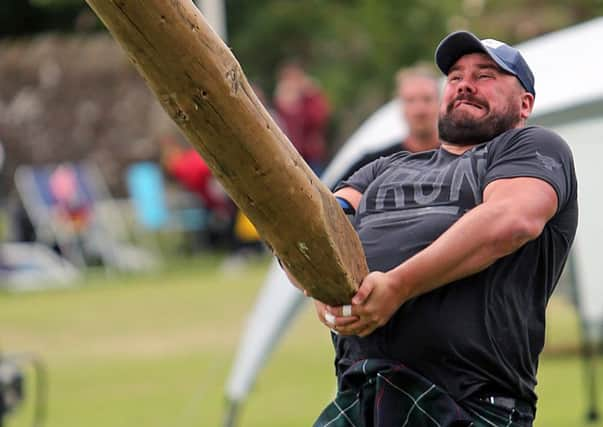Sam Gardner: It's not just Highland Games feeling global warming's heat


However, if there is one thing we shouldn’t be surprised by it is the increasingly chaotic and disruptive weather we’re experiencing as climate change plays out in front of our eyes.
Already this summer we’ve seen the devastating impacts of a runaway heatwave in many parts of the world, wildfires raging in the Swedish Arctic and in Greece, while temperature records are being broken across Europe. This summer Scotland’s own very dry weather has reminded us the effects of a warming climate are very much on our own doorstep and it is no longer just storms and flooding we need to prepare for. The prolonged period without rain has helped spark wildfires from Edinburgh to Torridon and impacted on farmers across the country, threatening livestock and harvests.
Advertisement
Hide AdAdvertisement
Hide AdOur much loved wildlife is also feeling the heat with some of our most iconic mammals, such hedgehogs, which eat invertebrates that favour wetter weather, under threat. If temperatures continue to rise, you don’t need to be a scientist to work out what happens next.
It’s long stopped being just environmental groups sounding the climate alarm bell, the consequences of runaway climate change will be felt by all and impact on economies across the world. Earlier this week, scientists from the highly respected Stockholm Resilence Centre published a particularly stark report arguing that even if the carbon emission reductions called for in the Paris Agreement are met, there is a risk of the planet entering what the scientists call “Hothouse Earth” conditions. In this scenario, the global average temperature will stabilise 4-5C higher than pre-industrial temperatures with sea levels 10-60 metres higher than today. They add their voice to the urgent calls to greatly accelerate the transition towards an emission-free world economy.
For all the above reasons and the reality that the world’s poorest are already feeling the worst impacts of climate change, we must redouble and redouble our efforts to cut greenhouse gas emissions. The loss of a Highland Games event is the tip of the iceberg of the unpredictable, disruptive and economically damaging impacts Scotland will experience.
The good news is that it’s not too late for us to do something about it. Scotland has demonstrated climate leadership in the past, with the Climate Change Bill in 2009 including world-leading targets, which we have met years early. In the coming months we have the chance to again show the ambition that others must match if we’re to be confident of preventing a Hothouse Earth. To do that, the new Climate Change Bill must set a clear commitment to end our contribution to carbon emissions by 2050.
Last year over 19,000 members of public called for a strong Scottish Climate Change Bill and earlier this year a dozen of the world’s leading climate scientists including professors from Cambridge, Oxford, London, Edinburgh and Aberdeen universities urged the Scottish Government to adopt a target of net zero emissions by 2050 at the latest. We sincerely hope politicians of all parties listen and act so that Scotland can continue to be a world leader on the climate stage and we can look forward with some optimism that the worst impacts of climate change can be prevented.
Dr Sam Gardner is the acting director of WWF Scotland
